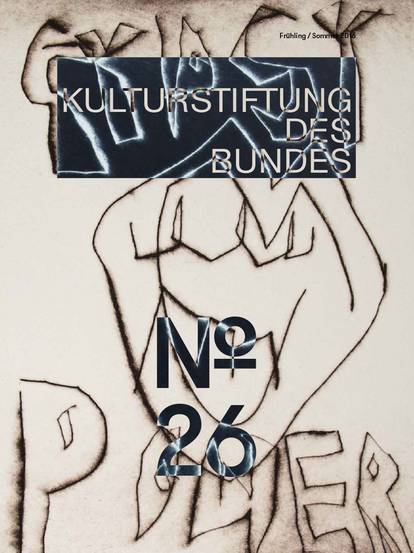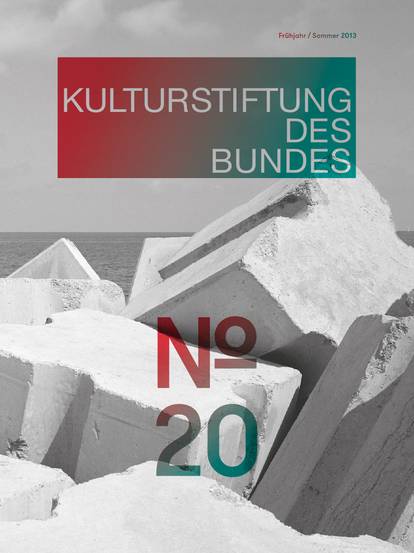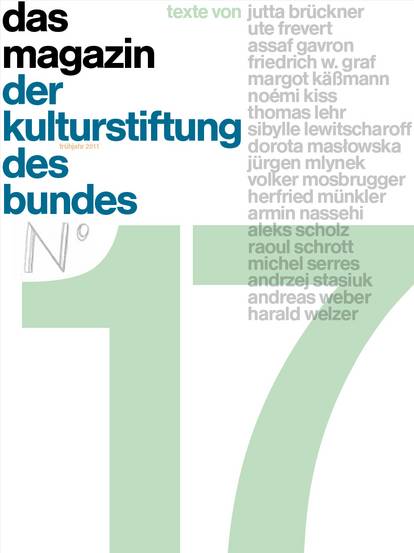Lukas Bärfuss asks why we aren’t reading Hermann Hesse anymore. We should be ashamed of ourselves.
The first time I ever heard of the writer Hermann Hesse I was twelve years old, when one of his books, the story "Beneath the Wheel", became popular in the higher grades at our school. I didn’t read it at the time – with the exception of the first few pages – but I do vividly recall the brown-coloured book jacket which seemed dark and depressing, and which in combination with the title, has always evoked a sense of brown bleakness whenever I’ve thought of the writer Hermann Hesse since. A colour which became the tone of his skin and a W, a letter seldom found at the end of a word in German, as in Calw, Hesse’s birthplace, located in Württemberg, as the flap text will always tell you.
None of this is necessarily interesting in itself. Nor the fact that when I was sixteen, I, like so many others, devoured "Narcissus and Goldmund" and "Siddharta" in quick succession. In that first year after completing mandatory schooling, I worked abroad and was entirely on my own. I can’t remember the books very clearly anymore. Other books made a deeper impression on me. And I’ve hardly read Hermann Hesse since. I’ve encountered him here and there. I put him aside.
The basic contours of my experience with Hesse likely resemble those of most people. This is the only reason why they might be interesting – to realise how a reader’s relationship to his author is a reflection of the times, the zeitgeist. This reader is a young person, and youth – especially in bourgeois society – is a problem, a danger that some do not survive.
Hermann Hesse writes about this danger, about the lethality of certain ideas. He speaks of the gift, the feeling, the intimacy a child loses on his way to manhood. He knows of the training and conformance that are necessary to become a proper and sensible member of society. And it often happens that the child does not survive his transformation into a man.
Because youth eventually comes to an end, so does one’s interest in Hesse’s writings. The adult citizen no longer needs a Demian, or a Steppenwolf. In this society, living a rapturous life is generally unsuitable.
Hesse remains a case, however, a revealing and extraordinary case in German-language literature of the 20th century. There are several reasons for this. First of all, there’s the duration and breadth of his success. In the one hundred years between 1896, which marked Hesse’s debut, and 1996, when his fourth volume of correspondence was published, hardly a year went by without the release of a new edition. Over 100 million of his books have been sold. He founded and financed the most important publishing company for post-war West German literature. Clearly there are reasons enough for which he deserves our gratitude. He could be a role model. But no one wants to emulate Hermann Hesse. What contemporary writer feels called to cultivate his legacy, to continue his tradition? And what young academic would build her career on his texts?
Hermann Hesse’s works are suspected of being kitsch. One could write a history of kitsch based on his works, a history of the steps, the arcades, the ceremonies with which middle-class culture stages its works. The display cases in museums, the peepholes at fairground stalls, the premium editions bound in half-linen and full-leather, the trimmings which denote their significance, the ceremony, the place of the obscene and vulgar – all of these structures and categories haven’t prevented Hesse’s work from spilling over its confines. His works have refused to stay where people wanted them.
For the anti-communists, he was a wolf in red sheep’s clothing. For the real socialists, he with his spiritual quality was an unreliable comrade. The polarised world demanded a world view from everyone. There was no escape.
Despite his ideological unreliability, the East German authorities wanted to print his works. For the committee in Stockholm, there was no ignoring him, though they suspected he was an anarchist. Or was that only a phase – a phase of his early years? And conservative critics wanted to know whether he wasn’t poisoning the morals of the young generation, the youth who would also become a problem and later call themselves the 68ers.
His citizenship was a telling sign of his volatility. As the son of a German-Baltic missionary, he was granted Russian citizenship by parentage, became a Swiss national at age four when his father took a position in Basel, then returned to Calw where he, in order to attend school, became a Württemberger. And then at the end of his forties, he once again became a Swiss citizen permanently. This back and forth raises suspicions even today. No one would put their hand in the fire for Hermann Hesse’s Swiss citizenship. Nationally speaking, he’s a chimera, a hybrid. What should you think of a man who obviously never possessed a natural homeland?
One senses this mistrust in many places in the documentation of his political writings. In his correspondence with Heinrich Rothmund, head of the Swiss Immigration Police between 1919 and 1954. Later in the accusations, insinuations by a literary critic in the Nationalzeitung in Basel where he was more or less openly denounced as a Nazi collaborator.
These disputes lie in the distant past. The artillery smoke has dissipated, the rubble has been carted away. And yet shame still hovers over the quiet graves of some writers. It is this shame that distinguishes Hesse’s case and from which we can learn something about the history of civil society in the 20th century.
At the centre of Enlightenment, and by extension, civil society, lies a promise. It is the method used by René Descartes, inscribed in his "Discours de la méthode", first published in 1637 in Leyden.
"But I shall have no fear of declaring that I think I have been fortunate, as I have, since my youth, found myself on paths that have led me to certain considerations and maxims from which I have formed a method by means of which, it seems to me, I have the ways to increase my knowledge by degrees and to raise it gradually to the highest point to which the mediocrity of my mind and the short span of my life can allow it to attain."
Increasing one’s knowledge by degrees until it reaches the highest point, the summit – does this only apply to science? Or can or should one perhaps understand it in a biographical sense as well? When we increase our knowledge, does it follow that we lead a better life? And what would it be, this better life? A life without suffering? In the wake of the 20th century, we know it was this race to the top that produced the fruits of modern society.
The European of the 21st century, however, mistrusts this Cartesian promise. He knows how ambivalent the fruits of this progress can turn out to be. Setbacks are normal, bankruptcy is a constant worry. The contemporary has learned to assume a pragmatic approach to daily life. What this means, in his case, is to ensure he remains an economic factor. Predictable, and thus measurable, with a price attached. As the British say, to make a living!
The problem the contemporary has with the notion of progress is the inability to steer it. The research findings are acknowledged. The models are accepted. What else could he do? How could he – the contemporary – permit himself to be put at unnecessary risk? He is not allowed to quit. He may, however, take time out. But afterwards, he must return to the economic cycle. His existence demands consolidation. Sturm und Drang must not be allowed to extend beyond a certain age. This obligation is called ‘growing up’. And thus he no longer questions the conclusions from economics and pharmaceutics, he swallows them, both in the symbolic and literal sense.
And when someone reminds him in his stagnation of the promise, the Cartesian summit, of the great, non-negotiable, the principles, the citizen feels as if he has been caught in flagrante. He didn’t mean it that way. Change is an incentive, yes, but not something to aspire to.
Yet Christ died at age 36, and as there are still relics of Christian mysticism in the culture of civil society, like the story of the Sermon on the Mount along with its promise of transformation, the adult citizen senses how little peace is contained in his economic existence. And this hollowness at the centre of his existence requires compensation.
In our generation the spiritual has found a refuge in technology. The gurus of today are software and hardware manufacturers. In their workshops, they cultivate the connection of the Eastern with the Western heritage. They have replaced the antiquarians who once displayed Noh masks and Buddha statues in their libraries. The East, for the longest time, was a place reserved for special prints and bibliophiles. Today, after the marriage in Silicon Valley, it has become mainstream.
No one expects to be saved by this spirit, technology will not redeem the citizen. The Enlightenment did not prevent excesses of violence. It has accelerated and proliferated them. Literature as propaganda, physics as the fundamentals of artillery, chemistry in weaponry, administrative sciences as the prerequisite for the industrial extermination of human life – this is all proven and described, it is the contemporary’s experience.
He flees from these contradictions by turning inward, seeking serenity, the virtues of the Greek Stoa. It had once been the saving grace for subjects who were bereft of the ability to bring about change, under the reign of the Roman emperor Augustus during which every political action was deadly and salvation was not to be found in public, but only in private. “Stoicism, indeed, stood for order and for monarchy,” according to Ronald Syme’s portrayal of "The Roman Revolution" under Augustus. The monarchy, that form of dominion, justified by the third party, that requires no justification and must be accepted as a given, can be found in the final presentiments of a canon. The contemporary individual still knows about an order which must have existed at one time and assigned every piece of content its appropriate place. He presumes that this order had a comforting effect. Those who lived in it separated the insignificant from the essential. They were capable of passing judgement. For the contemporary, the comforting judgement only exists as a gesture, as a reference. Nowadays judging means making an economic decision.
It is the memory of the broken promise that fills me with shame when reading Hermann Hesse. Shame is the social recognition of weakness. It goes hand in hand with pity. But both, shame and pity, are detrimental to a successful life in society, they must be replaced. We have found a synonym for pity: empathy, sympathy. Sympathy is considered a skill, a means of deciphering, of improving and at best, of making good use of a social situation. The merchant, the trader, requires empathy. He wants to understand his customer’s needs. The better he understands them, the more precisely he can customise his service. Sympathy is the affirmation of what exists, but criticism requires pity. Herein lies the common root of Christianity and Western science. It secularised the idea that redemption can be achieved only through weakness and pity.
For the citizen of the 21st century, there is no redemption, there are only solutions. He has not rid himself, however, of the desire to transcend all contradictions, he has simply suppressed them. Reading Hermann Hesse reminds him of this act of suppression. A sense of shame overcomes him. If one day he learns to live with the knowledge that there is no salvation, no summit, no God, and that every attempt to find it is futile, then Hermann Hesse will mean nothing to him anymore. Feeling shame, however, demonstrates that, despite everything, he still understands Hesse.

![[Translate to English:] Magazine 38](/fileadmin/_processed_/f/1/csm_Magazin38_Cover-Vorschau_921x1230_689f428dc3.jpg)
![[Translate to English:] Magazine 37](/fileadmin/_processed_/b/c/csm_Mag37_Cover-Vorschau_921x1230_b5129fdb2a.jpg)
![[Translate to English:] Magazine 36](/fileadmin/_processed_/2/a/csm_Cover_Magazin36__issuu_2f3cef97bb.jpg)

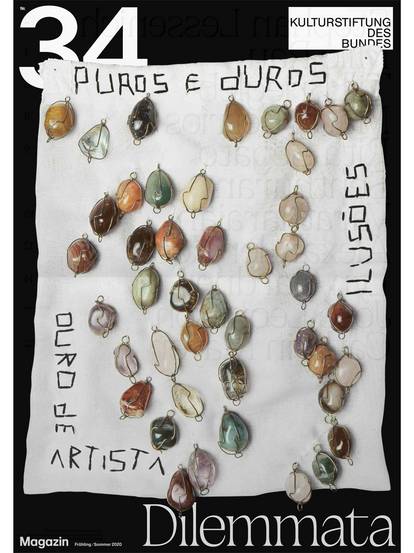


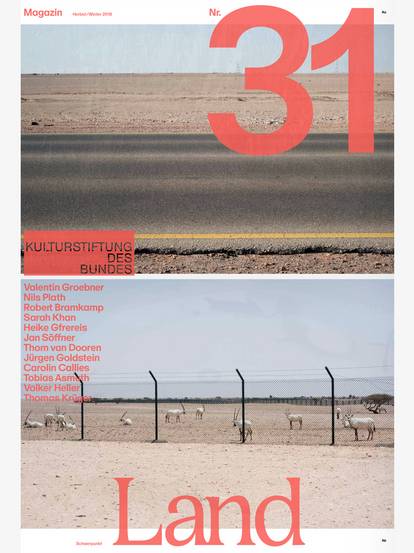
![[Translate to English:] Magazine 30](/fileadmin/_processed_/c/b/csm_magazin30_vorschau_9005f773d3.jpg)



